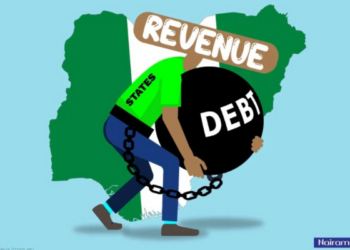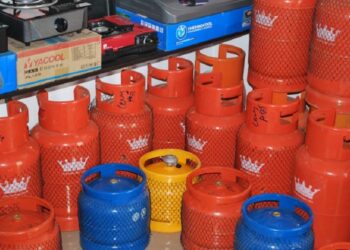Nigeria’s total capital importation saw an increase of 210.16% in the first quarter of 2024, rising from $1.08 billion in Q4 2023 to $3.37 billion.
This is according to the latest capital importation report for Q1 2024 released by the National Bureau of Statistics (NBS) on Monday.
When compared to the corresponding quarter of 2023, the increase was 198.06% from $1.13 billion, showcasing the growing confidence of foreign investors in Nigeria’s economy.
Nigeria’s diverse sectors have shown varied performance in attracting foreign investment, with significant growth in key areas such as banking, trading, and telecommunications.
Below are the top 10 sectors that attracted the most foreign investment during this period:
#10 Transport
The transport sector saw a modest investment of $5.05 million in Q1 2024, marking a significant rebound from Q4 2023’s minimal $0.14 million. This 3,507.14% increase highlights renewed interest in the sector. However, when compared to Q1 2023’s $12.94 million, there’s a 60.97% decrease, indicating that the sector is yet to return to its previous levels of foreign investment.
#9 Agriculture
Agriculture attracted $15.8 million in Q1 2024, a substantial increase from the $0.42 million invested in Q4 2023, representing a 3,666.67% rise. This sector also saw a notable improvement from Q1 2023’s $4.84 million, reflecting a 226.45% increase. The rise in investment points to growing confidence in Nigeria’s agricultural potential.
#8 Electrical
The electrical sector received $58.93 million in Q1 2024, showing a 15.71% increase from Q4 2023’s $50.94 million. Compared to Q1 2023’s $7.38 million, the sector experienced a remarkable 698.24% growth. This surge highlights the increasing demand for electrical infrastructure improvements.
#7 Financing
Investment in the financing sector decreased to $75.55 million in Q1 2024 from $135.59 million in Q4 2023, a 44.29% drop. This is also lower than the $118.66 million recorded in Q1 2023, reflecting a 36.35% decline. Despite this, the sector remains a critical area for foreign investment, albeit with fluctuations.
#6 Shares (Capital Market)
The shares sector (as the NBS describes it) attracted $98.71 million in Q1 2024, up from $51.45 million in Q4 2023, indicating a 91.86% increase. Compared to Q1 2023’s $88.51 million, there’s an 11.52% growth. This suggests growing investor confidence in Nigeria’s stock market.
#5 IT Services
IT services saw an impressive investment of $171.7 million in Q1 2024, skyrocketing from $9.08 million in Q4 2023, a 1,789.75% increase. However, this is a 20.52% decrease from Q1 2023’s $216.06 million, indicating some variability in foreign investor interest in this sector.
#4 Telecommunications
The telecommunications sector received $191.57 million in Q1 2024, slightly down by 5.57% from $22.84 million in Q4 2023. However, this is a 768.91% increase from Q1 2023’s $22.05 million, reflecting substantial growth and ongoing investment in Nigeria’s telecom infrastructure.
#3 Production/Manufacturing
The production and manufacturing sector attracted $191.92 million in Q1 2024, down 57.37% from $450.11 million in Q4 2023. This also represents a 25.05% decrease from Q1 2023’s $256.12 million, indicating a decline in investment, possibly due to economic uncertainties or operational challenges.
#2 Trading
Trading saw a significant investment increase to $494.93 million in Q1 2024, from $66.34 million in Q4 2023, representing a 645.92% rise. This is also a substantial 440.75% increase from Q1 2023’s $91.53 million, highlighting the sector’s growth and attractiveness to foreign investors.
#1 Banking
The banking sector led the pack with $2.07 billion in Q1 2024, an enormous increase from $283.3 million in Q4 2023, marking a 629.88% surge.
This is also a significant 579.19% increase from Q1 2023’s $304.56 million. The banking sector’s robust performance underscores its critical role in Nigeria’s economic landscape and its strong appeal to foreign investors.
























